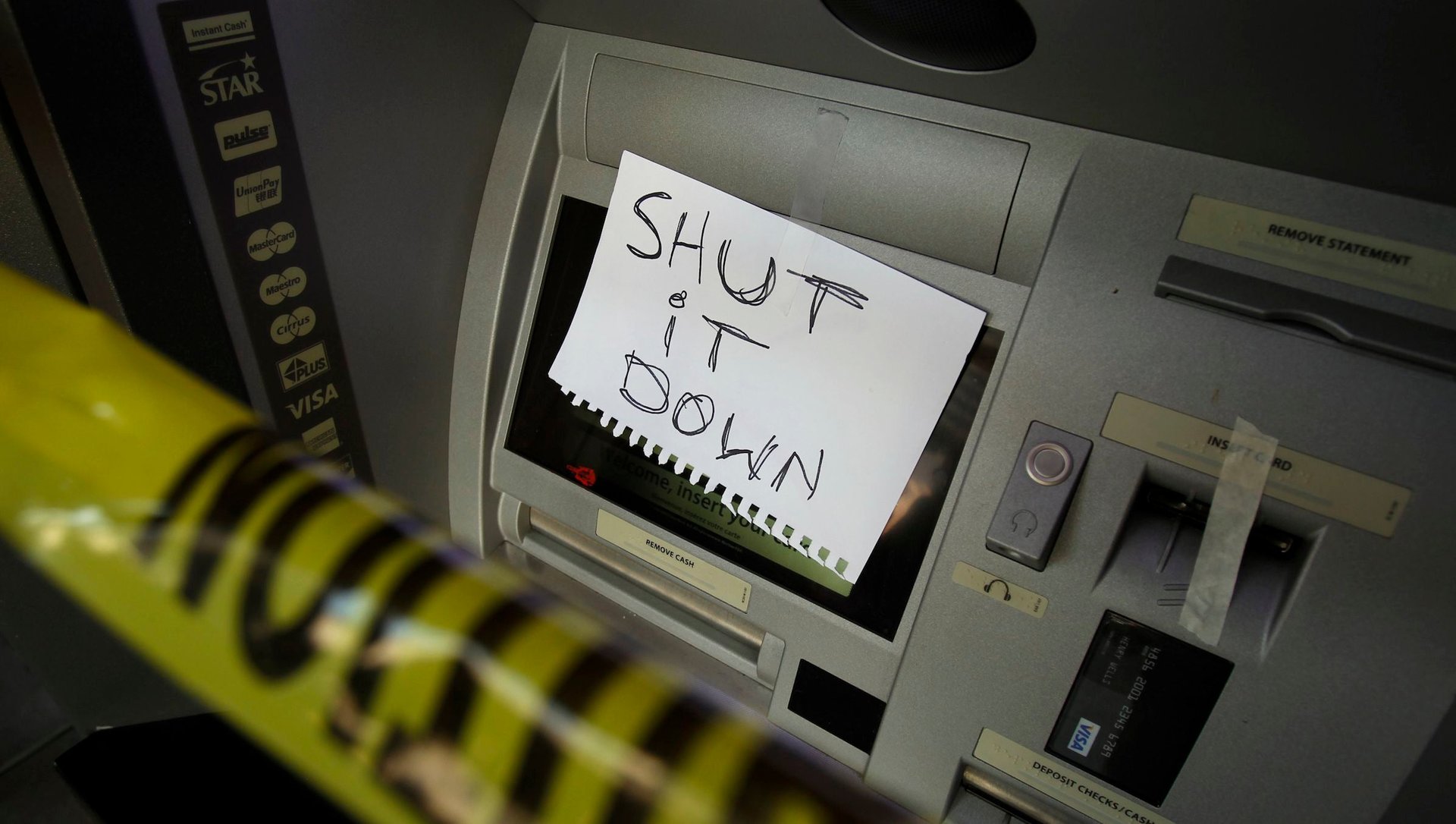Wall Street banks can’t visualize a world without themselves
Back to the drawing board.


Back to the drawing board.
That’s where regulators told 11 of the biggest banks in the US to go, after rejecting the latest drafts of their so-called living wills today.
The “living wills” are intricate blueprints meant to guide regulators if they must unwind sprawling financial institutions that are in danger of collapse. Ideally, these plans can help regulators put failing banks out of business without causing disruption to the financial markets and the broader economy. (Fear of a disorderly bank collapse is what drives governments to bail-out banks, rather than letting them simply fail.) The 2010 Dodd-Frank US financial overhaul requires certain large banks to submit “living will” plans annually. But regulators—the Federal Reserve and Federal Deposit Insurance Corp. jointly reviewed the wills—have found banks’ early attempts at providing these documents sorely lacking.
“The plans provide no credible or clear path through bankruptcy that doesn’t require unrealistic assumptions and direct or indirect public support,” Thomas Hoenig, vice chairman of the Federal Deposit Insurance Corp., said in an official statement.
The banks, including JPMorgan Chase, Bank of America, Bank of New York Mellon, Goldman Sachs, Morgan Stanley, Deutsche Bank, Citigroup, UBS, State Street Corp., Credit Suisse, and Barclays, have until July 1 of next year to address all the shortcomings, regulators said.
Here are some of the shortcomings regulators identified in this submission (translated from regulator speak to plain English):
- Unrealistic assumptions about how freaked out their customers and counterparties would be during a crisis
- Lack of clarity about the way in which important services like providing clearing for complex securities (think derivatives) would work if a bank is in dire straits
- Uncertainty about how officials would know where everything is (assets, client money, etc.) if they’re faced with a rapid collapse
- Failure to produce a stream-lined legal structure that makes it easier to shut the bank down, or sell assets if needed
The rejection of the draft living wills is an interesting development, largely because of what it could mean next for the financial behemoths. Under the reforms in the Dodd-Frank Act, regulators have power to increase capital requirements and even break up a bank if the institution fails to provide a credible living will. That’s a power they could be inching toward, with regulators saying in their official release that they “expect to use their authority” to level new restrictions on banks if their living wills aren’t up to snuff next time.